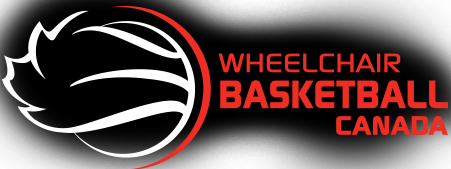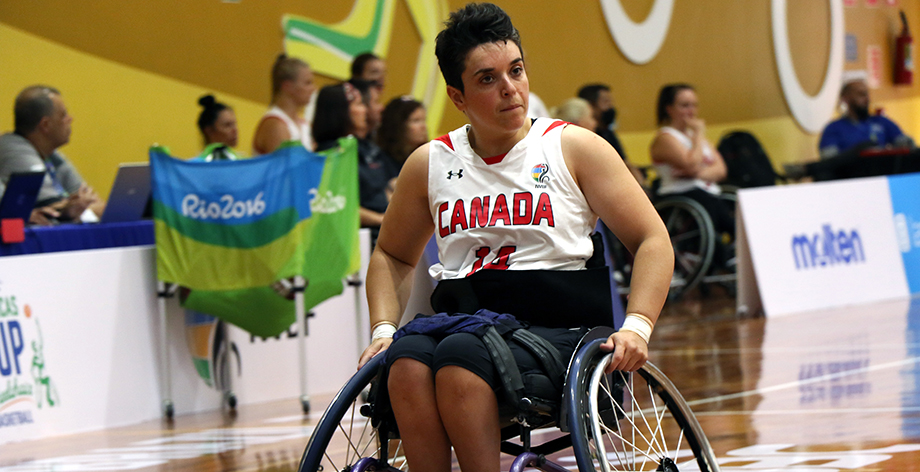Sofia chronicles her journey from growing up in Morocco, moving to Montreal, her accident and finding wheelchair basketball in this month’s Athlete Spotlight presented by Toyota.
I grew up in Fes, Morocco, in a typical family with an older brother and twin sisters who are a year and a half younger than me. My brother is five years older than us, so he moved away when I was quite young. I grew up with him till I was about 10, and then he moved for high school and came to Canada before me.
We’ve always been close – the four of us. I have a closer relationship with my sisters because we grew up more together. They’re also my best friends too.
I had a really cool childhood; I played many sports and travelled a lot with my family. I played soccer, handball, and basketball; I also played volleyball and tennis.
I moved to Meknes when I was 15 for high school. From 15-18, I lived at my school, I didn’t live with my parents. It was great because I lived with all my friends. It was the best period of my life living with my friends and playing sports daily.
Move to Montreal
I decided to move to Canada because I was familiar with the country. I lived in Moncton, New Brunswick, for two years when I was 11. I had all my papers and documents; I didn’t want to stay in Morocco, so Canada was the easiest choice.
Moncton was really different because in New Brunswick, they speak French and English; at that time, I didn’t speak much English. It took me a long time to understand what people were saying. But I was young and quick to learn. It was an experience. It made me grow up faster – learning a new culture.
Living in Moncton helped me decide to return to Canada after I was done high school.
I moved to Montreal for university. I finished high school in Meknes and then moved to Montreal to study engineering when I was 18 at Polytechnic Montreal.
I didn’t really want to go into engineering – my preference was to get into med school or anything related to health, but I was only accepted into the engineering program.
Everyone back home in Morocco ends up being either a doctor, engineer or going to business school.
I did like studying engineering, but it wasn’t something I initially wanted to do.
The accident
I had my accident in 2013. I was in a motorcycle accident with my friend. He was driving, and we got hit by a car at an intersection. I flew over the handlebars and ended up with a broken back, broke both my legs, and ribs, and damaged my right shoulder.
I was paralyzed from the chest down, and I also have paralysis in my right shoulder.
When I was rehabbing from the accident, I had one of the best therapists, and she got my back involved in sport. She showed me the options, and I pretty much tried everything, including wheelchair basketball.
I actually tried wheelchair basketball with my sisters, and one of them told me if I didn’t want to play, they were going to play without me.
Deciding on wheelchair basketball
With wheelchair basketball, I just loved the team spirit. In the beginning, when I was learning the sport, it was more about the socializing aspect and getting to know people and learning how to deal with my disability.
Once I learned more about the sport, I loved the strategy behind the game and the contact. I love the sport.
About a year after the accident, I joined CIVA (Centre d’intégration à la vie active). My basketball skills started getting better when Marc Antoine Ducharme became our coach – he helped me a lot in the beginning. Now Christian LaSerra helps me a lot with my game.
Introduction to SWNT
I was at a camp with my Quebec team, and one of my assistant coaches asked MA, ‘Have you ever considered Sofia for the National Team?’ Then, after CWBL Nationals in 2022, MA spoke to me and asked me if I wanted to come train with the Senior Women’s National Team. I told him I was for sure interested.
Before MA approached me, I went to a couple of camps with Mike Frogley in Toronto as well.
Getting named to the Senior Women’s National Team was a lot of fun. I really loved it. I still don’t believe I can compete at that level; I don’t feel I’m good enough to play at that level, but I was given the opportunity, so I’m making the most of it.
The World Championships in Dubai was cool to see the high level of wheelchair basketball. To see that level of competition internationally with females was great to see. It showed the potential in women’s sports.
Advice for new athletes
Don’t stop after trying wheelchair basketball once because the first time you sit in the chair and try wheelchair basketball, it’s quite hard. With training, you’ll get the hang of it. I remember the first time I tried wheelchair basketball, it was really hard. I didn’t think I’d ever be good at the sport, but with practice, you get there.



